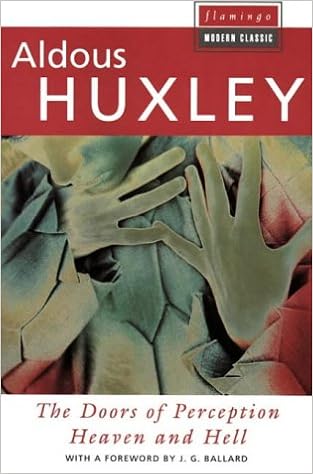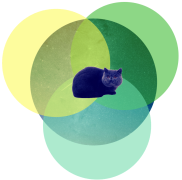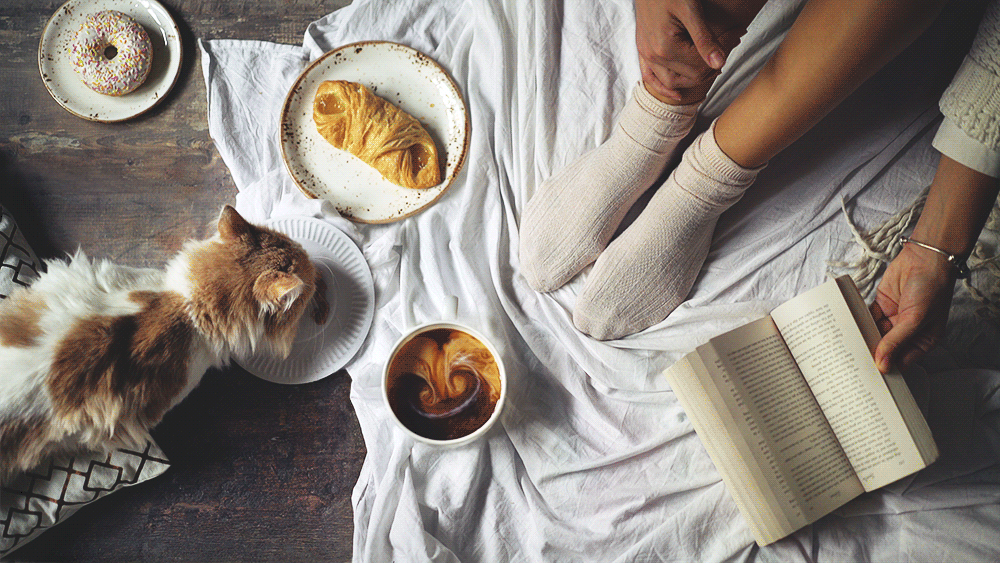Some books help you as a teenager to move beyond the claustrophobic and limited world you were born into. We can’t help where we were born or who our family is. However, when we are young, if we read the right books, we may just be able to transcend challenging beginnings and see the world as bigger and more amazing than the world presented every day. Here are some of the books that helped to do this as a teenager, helped me to move beyond the tumultuous family life and the poor area where I lived and into the world where bigger things were possible for me.
Night by Elie Wiesel

I read this book very young – I would say too young. I think I was about 12. It’s the true story of Elie Wiesel, a young teenager when he was put into Auschwitz concentration camp. In the book Night, he recalls in full graphic horror what he saw and experienced there, surrounded by death and evil. I still recall how intense it was for me, I was so deeply upset and depressed by reading this book. I actually became very anxious, depressed and sad about the entire world after reading Night. It affected me probably for the worse. I was knocked out of this childish fantasy world that I was in until then. Indeed, reading Night was for me, a loss of childhood innocence about the world. I guess every child needs to go through that at some time, but it was brutal and hard for me to realise the darkest chapter of human history in this way. Strangely, I remember feeling really guilty about it, as though – why should I feel so sad about the world when nothing that tragic had ever happened to me. You know…when you’re young you have no idea how to control your emotions or understand yourself. It can be hell being young.
“Never shall I forget those moments that murdered my God and my soul and turned my dreams to ashes.”
― Elie Wiesel, Night
A Remembrance of Things Past -Marcel Proust

Reading this book was like taking a sedative or going into a strange meditative trance, where everything was beautiful and seen through a golden gilded frame. Proust was the master of long sentences. Yet his sentences never bore, but instead send you swirling upwards into ecstatic bliss. It was a strange feeling reading this at the age of 18, it was like literary heroin or meth for me. This book made me simultaenously want to be a writer and realise that I would never be able to achieve something so sublimely beautiful as this. The way that sentences are structured are like you are swimming through the most gorgeous dream – this is difficult to explain. However I am glad that some others who have read this, feel the same way, and it’s known as a classic.
“Always try to keep a patch of sky above your life.”
― Marcel Proust, Swann’s Way
Wuthering Heights – Emily Bronte

I remember reading this book at about age 15 and being introduced to this overly purple and ornate prose, as well as the wind-swept Yorkshire moors, and Healthcliff, and feeling myself swoon inside. Even though Heathcliff was a straight-up nasty bastard to everyone, even Cathy, whom he was supposedly in love with. I found him and his brooding, moody, dark and mysterious ways completely compelling and erotic. Needless to say, over the ensuing years I ended up going out with a series of hapless, pathetic, Heathcliff-esque self-styled goth guys with very little going for them aside from great trenchcoats and good looks. Anyway, the impact of Wuthering Heights was for me, a romanticised vision of what a loving relationship looked like, replete with cracking thunder over windswept mountains and people riding bareback in the rain with long flowing dark locks. Yes – rather embarrassing on reflection, but absolutely amazing to teenage me.
“He’s more myself than I am. Whatever our souls are made of, his and mine are the same.”
― Emily Brontë, Wuthering Heights
The Collected Poems of Emily Dickinson

Dickinson’s poems had the effect of making you feel like you are sitting in a meadow with sunshine pouring on your back and butterflies dancing around you. It puts you in a state of sublime bliss and ease with the world. As someone who had a rather tumultuous home life, with a lot of violence and chaos – Emily Dickinson’s poetry was an escape, a pressure value I could release and be let into a different realm of love, hope and imagination. At the age of 15, I felt that if someone like her could write poetry like that, I was not alone in the world and there were others out there who were like me – I just had to find them.
“The sun just touched the morning;
The morning, happy thing,
Supposed that he had come to dwell,
And life would be all spring.”
The Bone People – Keri Hulme

As a young person I grew up estranged from my own culture and heritage, living across the ditch in Australia. So reading about Maori culture, mysticism and the wild coastal landscapes in New Zealand, from the point of view of the mixed heritage characters in this book (Pakeha and Maori) and their struggles with isolation and loneliness as outcasts in a remote town made a profound impression on me.
This Booker prize winning novel was written in an exquisitely poetic and literary way, it made me fascinated and obsessed with New Zealand – but the hidden inner emotional landscapes of New Zealand from a Maori perspective. Then I happened to move there as an adult, I think this book played a part in that.
“You want to know about anybody? See what books they read, and how they’ve been read…”
― Keri Hulme, The Bone People
The Hobbit – Tolkein

The whole idea of a complete, stand-alone fantasy world filled with different languages, customs, countries was completely mind-blowing to me as a teenager. I devoured The Hobbit with relish. It definitely felt more accessible to 13 year old me, compared to the Lord of the Rings, which I attempted at age 15 but I couldn’t get through it. LOTR seemed dense, and didn’t seem to offer any solid and satisfying conclusions.
In contrast though, the Hobbit was short, sweet and seemed to have a lot more magic and delightful moments in it, I just loved it and become hooked on Tolkien before the films were made.
“May the wind under your wings bear you where the sun sails and the moon walks.”
― J.R.R. Tolkien, The Hobbit, or There and Back Again
The Tibetan Book of Living and Dying by Sogyal Rinpoche

This book was filled with profound and ancient Buddhist wisdom. I had always been fascinated by death and reincarnation as a child. Strangely, I had a fixation on the idea that our dog was actually our great grandmother who had died when my sister was born, and was reincarnated because our dog had a very old and wise looking face. A lot of the word play in this book went completely over my head and I couldn’t really get a lot of it, but I was left with a reverent awe for Buddhism, Tibet and the Dalai Lama. I do remember finding the Buddhist ideas of impermanence very comforting at the time.
I was deeply unhappy with my life as a teenager and this idea that things could get better, and that change was the only constant in life along with the parallel teaching that you need to embrace the present moment and really live really helped me to cope and to find happiness. Not happiness in the material world, but rather in simple things like appreciating your pets, eating good food and sunshine.
“If you want to know your past life, look into your present condition; if you want to know your future life, look at your present actions.”
― Sogyal Rinpoche, The Tibetan Book of Living and Dying
The Diary of Anaïs Nin, Vol. 1: 1931-1934 – Anaïs Nin

A stunning and seductive diary unlike any other. This revelatory series of diaries showed me how to grasp the world with a whole heart and embrace all of the senses and possibilities of life. This was a book to read as a teenager if you wanted to grow up to become a bohemian artist or writer. It romanticised this life of decadent squalor and passionate relationships in pre WW2 Paris.
Throughout all of her diaries I used to underline and re-read over and over again half hidden thoughts that were always on the edge of my mind but never articulated properly.
All of her prose was life-changing for me, it was like diving into a cool, clean lagoon after a lifetime of living in a desert. I soared like a dove after reading it all..
“What we call our destiny is truly our character and that character can be altered. The knowledge that we are responsible for our actions and attitudes does not need to be discouraging, because it also means that we are free to change this destiny. One is not in bondage to the past, which has shaped our feelings, to race, inheritance, background. All this can be altered if we have the courage to examine how it formed us. We can alter the chemistry provided we have the courage to dissect the elements.”
― Anais Nin, The Diary of Anaïs Nin, Vol. 1: 1931-1934
The Doors of Perception, Heaven & Hell – Aldous Huxley

I found my way to this book via my teenage love of Jim Morrison and The Doors. Jim of course took the name for his band from this book by Aldous Huxley. I used to love Jim’s spoken word, which I had on a cassette tape and would go to sleep listening to. There was something absolutely primal, pagan and sexual about the music of The Doors and Jim. I absolutely loved the way that Jim validated chaotic teenage bacchanalia through his songs. There was a lot of dense academic writing here that was completely over my head at the time. The key takeaway I got from this book though were that reality as we know it doesn’t really exist. Instead, various impossibly beautiful realms and exquisite dimensions exist out there, and the key to uncovering this was hallucinogenic drugs.
‘There are things known
and there are things unknown
and in between are the doors’; The Doors of Perception.


I must read ‘Night’ then. Wuthering Heights I gave up on at school (Just wrong time) but I did hike past Top Withins on the Penine Trail in the 80s. The Hobbit, yes, but think I’ve only read snippets of Huxley. Never got the flow of The Bone People, but it was a gift. So I will finish it one day! (Hulme lives further up the West Coast from my patch). And think I’ve only read a few bits of Anias Ninn. Maybe I should read more….
LikeLike
I guess if it didn’t grab you at the time it may not be for you? On the other hand, sometimes a book finds you at the right time, if you know what I mean. I found Huxley really dense as well and hard to get into, but I persevered and it was worth it in the end. Interesting that Hulme lives not too far from you, do you know her? I reckon she would be an interesting person to talk to. I recommend you try Anais Nin’s diaries, purely as philosophical books from the point of view of an artist working out the world and relationships…her insights and thoughts on life are just amazing. I would say more so than her erotica which is far more blue and full on and not as great as her non-fiction writing. I think if you were able to handle the whole experience of Auschwitz it would be OK to read Night, I probably wouldn’t read it again myself though as it was emotionally intense.
LikeLike
That’s quite an incredible reading list for a teenager. Powerful titles in there. Haven’t read night, but will one day. It my mind it seems like a similar read to victor frankls book- which I have and love.
The ‘best’ books I read in my formative years (18-20) were siddharta, zen and art of motorcycle maintenance and perhaps Don Quixote. Perhaps others…let me think…
LikeLike
I haven’t read the Victor Frankl book..will have to see about that one, so you really liked it? Yeah I think I was always super curious about the world, the meaning of it all etc, how to achieve happiness or peace in life , even as a young person. All of that stuff just gave me a lot of hope it wouldn’t always be shit for me – and it did worked! 🙂 I haven’t read Siddharta, Zen and the art of motorcycle maintenance or Don Quixote….it looks like I will get these from the library now quick smart.
LikeLike
Siddharta had a big impact on me. Herman hesse is such a good writer anyway but the story kind of stopped me in my tracks…it’s a simple, beautiful book. Fairly short too. Short of what the alchemist or Jonathan Livinstone seagull would be if they weren’t shit.
That victor frankl book is one to buy unseen. I have a hard copy. I found it inspirational despite the fact that half the book is set in a concentration camp. From what I’ve heard ‘Night’ is a more confronting read.
LikeLike
You should maybe do your own list of this kind Jeremy, if you want? I would certainly like to read it!
LikeLike
Ah yes! I love that type of post! I feel like I need more time to compile it though…so many books. I going to write something though.
LikeLike
Yes…me too! I have found that the more personal a list of book recommendations are, the more thoroughly enjoyable I find them. So I took a deep breathe and wrote it this way, but it wouldn’t need to be so personal if you didn’t want it to be 😉
LikeLike
That ‘moving’ photo/gif is great- did you make it?
LikeLike
That’s a great list for a teenager – lots of complex, subtle and vivid books.
My mentor through literature was Henry Miller. Until a friend recommended HM, my reading life had been nudged open a little by DH Lawrence, F Scott Fitzgerald and the Robert Pirsig title: ‘Zen and the Art of Motorcycle Maintenance.’ But the reality was that I was 21, and bereft of any radical idea of how to be self-inspirational. Then Miller came along.
To me, he said, in not so many words, that society’s prevalent ideas and structures were utterly constricting, and should be flushed away. My takeaways were:
* forget the idea of wearing a suit and office work, the conformity will kill your soul;
* don’t be afraid of poverty;
* travel as widely as you can – and if you can’t go there in your imagination by reading;
* pursue your sexual proclivities, without guilt or shame;
* stay away from those who may seek to edit and narrow your outlook;
* cultivate a spread of different friends;
* think for yourself, or somebody will do it for you.
For me, it was all phenomenal advice, cracking open a hard casing I had sheltered behind. I’m sure other authors bandied the same messages around, but Hen was my guy. He also introduced me to Anais Nin.
These days, I would single out Haruki Murakami. His characters are infused with an identical sense of paving their own paths, but fit in more seamlessly, often by slipping invisibly through society’s radar. And Murakami conveys a magic, ineffable and timeless, that sits behind all lives. 🙂 🙂
LikeLike
Strangely enough, I haven’t read much Henry Miller, even though I know that in real life he had a long-standing relationship with Anais and June. I just got besotted with Anais and her view of the world – got stuck on her, really. Now that you have provided these wonderful insights into his personal philosophies I am going to explore his work further. He and Anais were complete iconoclasts and not hedged in by society in any way, it was so refreshing to read these kinds of books as a teenager, it leads to becoming your own person, a wild roaming a free-spirit. This can be a both a good thing and a bad thing.
Interesting you say about Murakami being similar to this. I never would have put him in the same wild roving category as Nin or Miller but there is an erotically charged sense to his novels and his characters rove between worlds, into the jazz scene and into the subconscious…it’s the same thing. Ah I love Murakami too. Thanks so much for your comment that really made my day, take care and talk to you soon!
LikeLike
Do you have a blog Biscuit Factory, I would like to follow you!
LikeLike
Yes, it’s at http://www.thebiscuitfactoryonline.com…do come and have a look please!
Kevin
LikeLike
Thank you Kevin I will have a look 😊
LikeLike